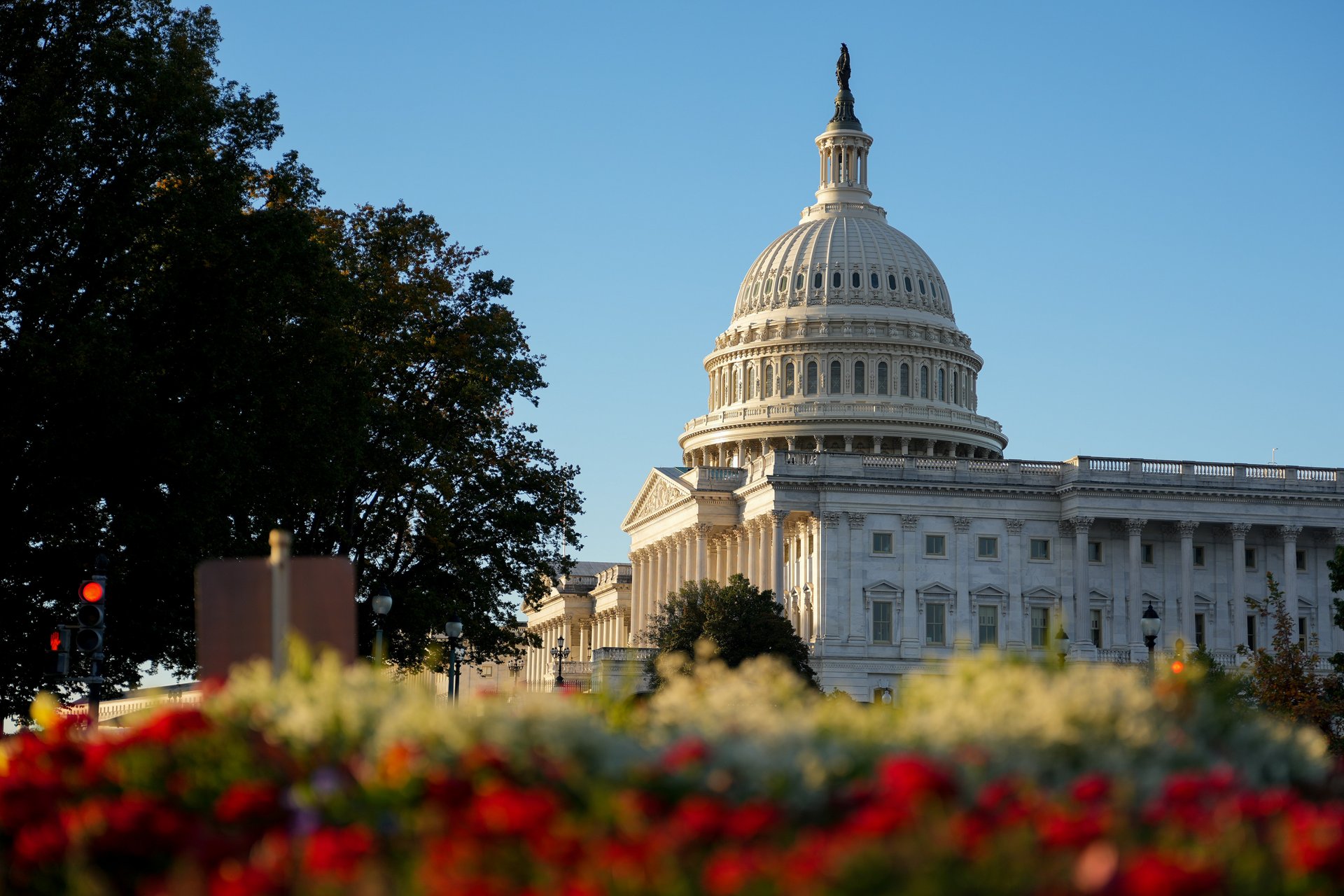The government shutdown is now the longest in American history. What comes next?
The shutdown has stirred concerns that it could crimp economic growth or even push the U.S. into a recession if it drags on with little end in sight

The US Capitol in Washington, DC, US, on Wednesday, Nov. 5, 2025. (Eric Lee/Bloomberg via Getty Images)
The ongoing government shutdown became the longest in U.S. history on Wednesday as it entered day 36.
Suggested Reading
The shutdown's impact has reached across government and the economy. Most federal agencies are closed with over 700,000 public-sector employees on furlough. Others, including air traffic controllers and military service-members, are deemed essential and working without pay.
Related Content
Travel disruptions are already underway, and the possibility of airspace closures loom for Thanksgiving travelers. Transportation Secretary Sean Duffy on Wednesday warned that some airspace might have to be closed next week to prevent "mass chaos" in airports.
"The safety of passengers and the integrity of America’s airspace is always USDOT’s number one priority," a Department of Transportation spokesperson said in an emailed statement.
The federal closure has also delayed companies from going public. Most employees at the Securities and Exchange Commission are on furlough, so the SEC can't carry out its usual responsibilities, such as reviewing new listings and approving declaration statements.
The shutdown has also stirred concerns that it could crimp economic growth or even push the U.S. into a formal recession if it drags on with little end in sight. Analysts project the shutdown is costing up to $30 billion in lost economic activity each week.
"I expect this to be more damaging than previous shutdowns, but relatively small and contained," Jason Furman, a former top economist to President Barack Obama, told Quartz. He believes the economy will "snap back from that damage pretty quickly."
The political dispute around the shutdown centers on Affordable Care Act healthcare subsidies that end in late December. Democratic senators have refused to supply their votes on a temporary funding bill unless the GOP agrees on extending those subsidies. The GOP and President Donald Trump have said they won't negotiate while the government is closed, causing the month-long standoff.
On Wednesday, Senate Minority Leader Chuck Schumer and House Minority Leader Hakeem Jeffries newly demanded a meeting with Trump to negotiate an end to the shutdown.
Public opinion surveys so far show that Americans are placing the bulk of the blame on Republicans. Senators in both parties are newly optimistic about a possible deal coming together this week to end the impasse, though such an agreement faces various political and procedural hurdles before reaching Trump's desk.
After Tuesday's elections — through which Democrats secured governorships in Virginia and New Jersey, eked out surprise victories in battleground states, and Mayor-elect Zohran Mamdani squelched Andrew Cuomo in New York City — Trump conceded the shutdown has been damaging to Republicans.
"The shutdown was a big factor, negative, for the Republicans," he told GOP senators gathered for breakfast at the White House.
